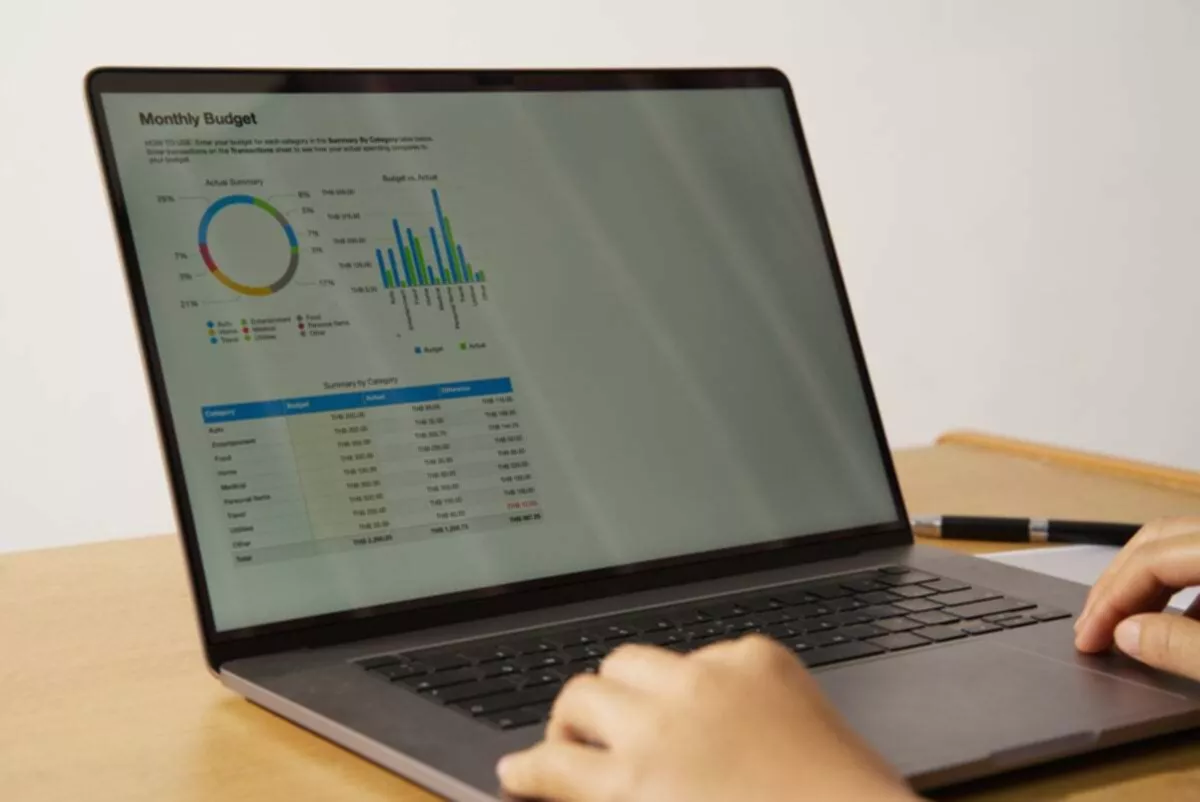Small businesses open various opportunities but mean responsibility and liability. Accounting aims to provide data for understanding the actual position. The documentation reflects the company’s performance. Often the owners prefer to do small business bookkeeping on their own. On the one hand: this solution allows them to save on expert help. On the other hand, it is necessary to have knowledge and skills and devote time to bookkeeping. The truth is, there is no right answer. The choice depends on your business needs and financial opportunities.
In this article, we will discuss the basics of small business bookkeeping and why it is important for a company’s work. Let’s dive into the details.
Small business definition
For bookkeeping, it is important to determine the type of company: small, mid-sized or large. The requirements of SBA vary from industry, and it also takes into account whether the company is commercial, where it is registered, and operates.
The standards of income level and staff size are not universal. Depending on the industry, a small business can have anywhere from 250 to 1,500 employees. According to the SBA, the firm’s annual income must not exceed $38.5 million. For example, a small agricultural business’s average annual income should not exceed $750,000, and the transportation company’s maximum profit is $375,000.
Why do small businesses need bookkeeping?
Small business bookkeeping shows how a company operates. Reports reflect the level of expenses, revenues, solvency, and profitability. Accounting books show how effectively you manage the business budget and real options for the further development of the organization.
Accounting is what will help avoid a financial crisis. The records show the actual state of affairs. Based on them, it is easy to plan a general company’s development strategy, including opening new branches, large purchases, loans, or even business conversion. To prevent financial problems, you must carefully maintain all the transactions.
Small business bookkeeping can help you avoid fraud. Inconsistencies in the reports show that something is going wrong in the company. You can accurately find the reason and identify an unscrupulous person thanks to invoices and receipts.
Correct accounting records are required to file a tax return. Storing and optimizing all papers will greatly facilitate the search for needed information. You can promptly provide the confirmation to the bank or IRS.
Basic small business bookkeeping documents
The sheer volume of paperwork is confusing. It is important to store all receipts, statements, and invoices in electronic or paper form. Not the fact that the document is necessarily beneficial. But it is better to have an archive than to solve problems due to the missing document.
When storing small business bookkeeping documents, pay special attention to the following:
- all bank statements
- receipts of buying or renting equipment
- sales receipts
- salaries
- utility bills
- tax expectations
- records on wages and bonuses
- report of fines payment
If you need to save receipts, it is better to scan and save them on a computer or cloud. Accounting data should be secured. Encrypt the folder or protect it with a password. This ensures that no one can change the data or delete it.
To store documents, you can use special accounting programs; it is a great way to organize papers. In addition, the software makes keeping the company’s financial records easy.
How to manage your small business bookkeeping
You must understand the basics to manage your bookkeeping for business. To fill in the books correctly, it is necessary to know the fundamental accounting concepts. So remember these definitions:
- income — money that customers bring;
- expenses — money you pay suppliers for rent, materials, and other items;
an asset is what your business owns;
- liability — for what you owe money (raw materials, materials, credit to equipment);
- revenue — money received from a customer in exchange for a product or service.
You also have to prepare three different reports: balance sheet, income statement, and cash flow statement. The first document demonstrates everything you have. These are assets, initial capital, and consumables. The income statement shows the firm’s position and the profit margin.
The cash flow statement reflects how much the business earns and the return on assets. It shows what brings in the most revenue and what you spend the most of your budget on.
When doing small business bookkeeping, it is important to distinguish between personal and work accounts. It is best to open a separate company account. This allows you to track the movement of the finances.
The cash register is equipment for monitoring transactions. It not only captures the fact of the sale but also speeds up customer service. Various types of machines are available. Just choose what suits the needs of the firm.
Bookkeeping methods
Small business accounting is an activity that requires attention and patience. You will work not only with standard indicators. Be prepared to deal with force majeure. Therefore, it is worth carefully studying the budget in order to understand how much money is allocated for an unforeseen situation.
Create an emergency fund. This is necessary in case of a sudden equipment breakdown, purchase from a new supplier, or other unexpected cases. The amount must cover all expenses for at least two months. The reserve fund allows you to significantly reduce the risks to your business and not be afraid to go bankrupt.
It is essential to decide how exactly you will conduct small business bookkeeping. There are two methods:
- cash;
- enrollment.
In the first case, companies use the cash register, which we discussed earlier. This is a great option for small businesses that are just getting started. The essence of the cash method is that the system fixes the transaction at the time of sale. Customers pay the amount through the cashier and receive a check with the time and date.
The enrollment method works differently. The system recorded when the money was received or debited from your account. This accounting option is more relevant for companies with an extensive inventory. Often small businesses start on a cash basis and eventually move to an accrual basis.
For small business bookkeeping, it is extremely important to record every movement of funds in the book. Even if you bought cheap stationery, write it down in the ledger. This can help avoid budget deficits.
What do accounting programs do?
Professional accounting software is a great helper to small businesses. With their aid, you can fill out all the documents much faster and find information in the archive. In addition, the use of a special program eliminates the possibility of errors in data entry or calculations.
The bookkeeping services allow you to pay bills quickly and speed up documentation review. You will also receive notifications when the money arrives in the company’s account. You do not need to independently check the state of the budget or go to the bank.
The program also sends notifications that you must pay for suppliers’ services, premises rent, and salaries. Timely payment of all bills guarantees the absence of debts, which is a huge benefit. Also, it is possible to send reminders to those who owe you money so that you will get all the money on time.
Accounting applications are indispensable assistants for small businesses. They reduce the time to complete tasks. Thanks to using advanced apps, you will be able to pay more attention to the company’s development and control the company’s financial health.
The market offers cheap, expensive and free-of-charge programs for accounting. There are also online platforms that do not require special equipment. Before you buy or install a program, study its functionality. You will be able to understand if you need this program and whether it will cover all your small business bookkeeping needs.
Small business taxes
Accounting is not only about calculating income and expenses. We are also talking about taxes. Without this, the company will not be able to work legally. Small business owners pay the following taxes:
- income;
- for wages;
- from sales.
Income tax depends on the characteristics and scope of your company. If you have registered your organization as a small business with limited liability, you must contribute funds as a self-employed person. Individual entrepreneurs pay according to a simplified scheme.
If you have employees, you will have to pay taxes on them. You will need to obtain an employer number and the city code in which the company operates. Usually, money is deposited every month. It is also possible to pay once every two weeks or once a quarter.
Sales tax specifics depend on the region in which you registered your business. With each purchase, the client will need to count a certain percentage. This takes into account the type of small business. The main thing is to avoid pulling to the last with the tax payments. The sooner you know how much you need to pay, the better.
Four ways to do small business bookkeeping
Often small business owners do the accounting on their own. This is the easiest and most affordable way, but it requires specific knowledge and skills. You need to spend enough time understanding all the subtleties. In addition, special attention and accuracy are needed to fill in all documents.
To save time, you can entrust bookkeeping to a specialist:
- hire a part-time or full-time expert
- choose outsourcing services
A full-time accountant is a person who will promptly resolve all issues, as he is always at the workplace. The specialist collects and processes documentation, fills out declarations, and calculates payments. But to start the work, it is necessary to organize a workplace and regularly pay wages to an in-staff employee. These are additional costs. The solution is to hire a part-time accountant to reduce the burden on the budget.
Accounting outsourcing does not require hiring a specialist; sign a contract with an outsourcing bookkeeping company and get expert help. This is the best variant for companies with a restricted budget.
Do all small businesses need an accountant?
As the practice shows, you should consult a bookkeeper even if you decide to do small business bookkeeping on your own. An experienced specialist will tell you about all the intricacies of filling out the documentation and how to file a tax return and store papers properly.
Not every small business can afford a full-time accountant for managing transactions. Outsourcing is a great option. It will help:
- maintain order in the financial component of the business
- complete the declaration correctly
- calculate taxes
- prepare analytics
- get rid of unnecessary paperwork
An experienced accountant will predict the company’s further development and select the most profitable strategy. You can avoid budget problems, assess weaknesses, and remove unnecessary expenses thanks to consultations.
How to find a professional bookkeeper?
Finding a good small business accountant is more challenging than it sounds. You can contact an accounting firm. Usually, specialists of different profiles and with vast experience are working there. Pay attention to whether the accountant is working in your niche. It will give confidence that the professional knows all the features of the work.
You can also view resumes on job sites or professional forums. Pay attention to the candidate’s profile, experience and what software he uses. Thus, you can understand how qualified a specialist is and whether he can help your company.
And the third option: ask your friends. Perhaps your friends have a small business. Find out who does bookkeeping and if they can recommend this specialist. This could be an outsourced specialist or a part-time employee. So you will find honest reviews about the work of an accountant and find a specialist who will help you with small business bookkeeping.
As you can see, accounting is not the easiest part of business, but it is a tool for monitoring and further development. With expert help, you will fully control your company without worrying about tax and financial questions.




















